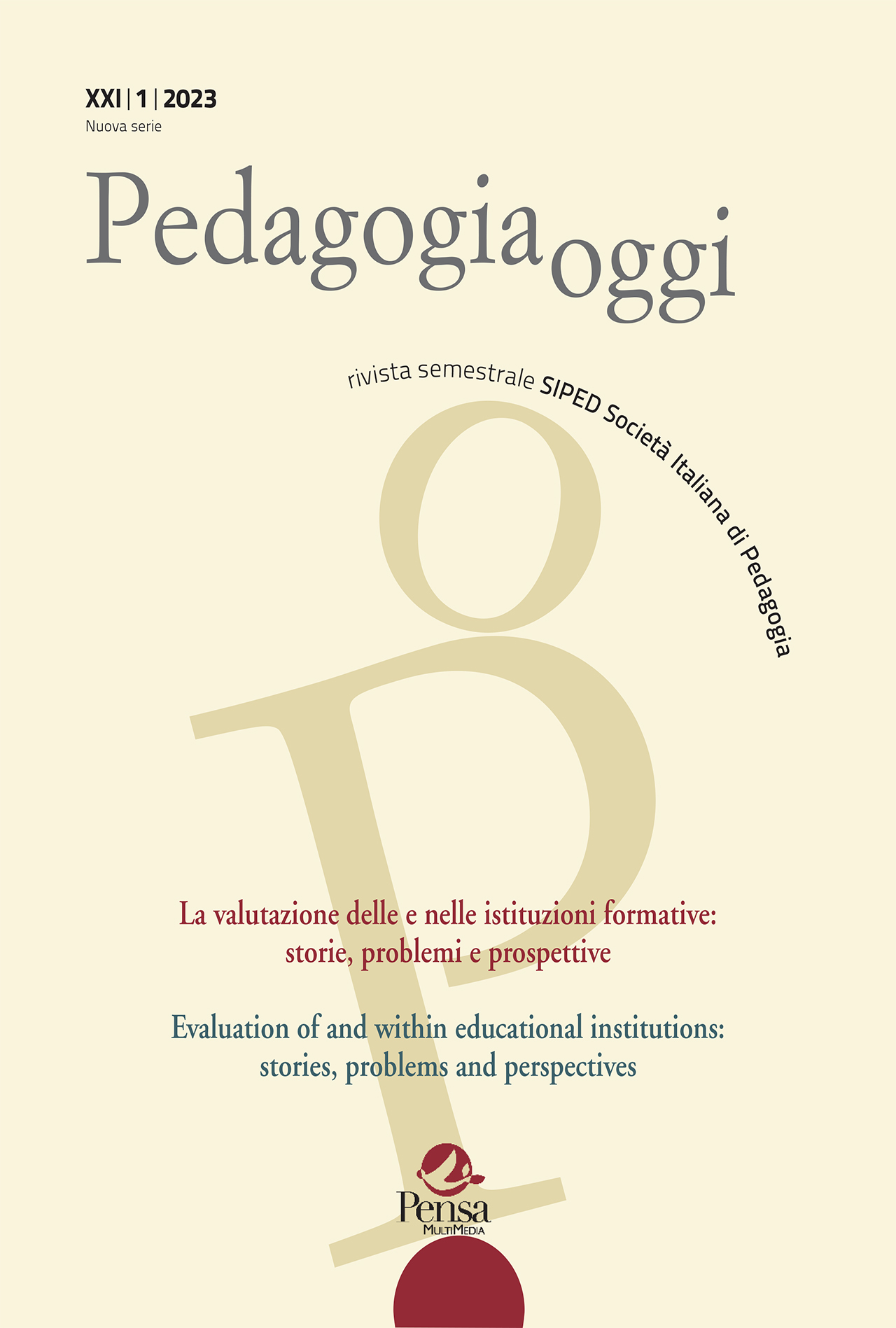Assessing students’ aptitudes: at the origins of docimology as an “exam science”
DOI:
https://doi.org/10.7346/PO-012023-26Keywords:
History of education, School history, School evaluation, Docimology, AptitudeAbstract
In a history of school assessment that remains largely to be written, at least in Italy, the topic of vocational orientation, linked to the concepts of “vocation” and “aptitude”, acquires particular importance in relation to the social function of examinations and judgements. This is where starts in France Henri Piéron, the father of docimology, intercepting at the beginning of the 20th century the instances of pedagogical activism, with all that is connected in terms of didactic renewal. In Italy too, the descriptive and measuring approach of psychology preceded and accompanied educational reflection: think of the names of Giuseppe Sergi, Sante De Sanctis, Giulio Cesare Ferrari and Agostino Gemelli, but also of Maria Montessori’s commitment to more decisive “active and modifying stimuli”. The article proposes to reconstruct the debate between pedagogy and applied psychology, in the context of a school accustomed to finding elsewhere «the congenial problematic that we usually consider proper to the education» (Visalberghi, 1955).




